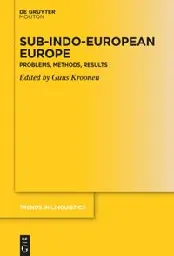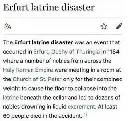The list of sentences is reproduced from an another study, and the Yale page that I've linked does note that others have found examples of such constructions with 'it', so it is true that the asterisk might be unwarranted.
Thank you for the feedback, so basically you don't perceive any difference between the sentences with regards to the person and number of the subject?
Personal datives | Yale Grammatical Diversity Project: English in North America
Native English speakers, how do you use personal datives? Today I came across an interesting text on the phenomenon here. Here are some examples from the text:
>4] a. I got me some candy.
>b. You got you some candy.
>c. We got us some candy.
>5] a. He got him some candy.
>b. She got her some candy.
>c. *It got it some candy.
>d. They got them some candy.
(5c is marked with * to mark its grammatical unacceptability)
As a non-native speaker, I find sentences (4a) and (4c) to be natural, although I'd probably never use them myself. However, other sentences are odd to me, and seem as if they would cause confusion, they could be interpreted as if the subject got the candy for someone else. (4b), with 'you', is even more odd to my ears, even though a cited study says it is much more common than 3rd person constructions.
How do you perceive these sentences, are they all acceptable/natural to you?
The video is half an hour long and I really don't feel like watching it all to find out something that could be said in one or two paragraphs of text, so I ignored it at first. As I expected, the video deals with a bunch of more or less relevant topics that you or OP didn't mention at all. It actually is a bit interesting, I've watched a part of it, and I do have to admit that US fire trucks are bigger than those where I live. The problem is that their deadliness is a consequence of several other factors, and only indirectly of their size. What you and OP decided not to do is to communicate that point with any nuance, and all that I could read from your comments is that, by some logic, getting hit by a 10-metre truck is much safer than getting hit by a 15-metre truck. OP complained about the driver "right-hooking" the cyclist, you just said the trucks are too big, do I really have to watch a half an hour video to understand why your comments don't sound nonsensical?
I recommend using xcancel.com if you want to check something on Twitter.
The meme doesn't really reflect reality, it's just a weirdly remixed right-wing meme. Climate change denialists don't ask for sources as they dislike them in general (Youtube videos and huffing your own farts is quite enough for them), they will just say the MSM has implanted the snow propaganda into your brain.
The rest of the world does without GIANT and dangerous emergency vehicles for one.
Could you show me those small and safe emergency vehicles that are used outside the USA? Because I'm outside the USA, I literally live near a firefighter station, and they're all probably as big as US vehicles.
but it’s not a place you go for open and honest discussions between people from both sides of the aisle
Where do you go for such discussions anyway?
If you're thinking of American right-wingers and fascists who are currently celebrating Trump's victory, I must say their view of the world is so dark, negative and pessimistic, that nobody could really describe it as utopia-like. This is a brief respite for them, nothing more.
If you're thinking more abstractly, or of some very specific incredibly lucky people, then I guess it could be so.
Wikipedia Signpost is mostly used for news and opinion pieces regarding WP, but every issue has this sort of humorous piece as well.
Yes.[1]
Citations
[1]it says so in the URL, after all ;)
Yeah, totally makes sense, "they" attacked IA one month in advance before the elections, knowing that IA would spend around a month rewriting and improving their site code until the Save Page option would be enabled again (unless IA themselves are a part of the plot???), so that news articles could be "edited on the fly" (with what result?) until the election day, while other similar web archiving services such as archive.is would keep working just fine.
clbottomt when the chtopt shows up [imagine this as that popular GIF meme]
I find it odd that the pic rejects Balto-Slavic unity and calls Sorbian "Wendish".
Albanian might be a sub-branch of Illyrian, but there's no solid consensus on the issue.
No but I just want to say that picture is incredibly cute.
Thanks. It's a part of history I know very little about.
I meant the "for over a hundred years" part specifically, I bolded it but it's not as noticeable as it should be.
the US a terrorist nation for couping democratically elected leader in favour of dictators for over a hundred years
Is this really true?
And that's more or less what I was aiming for, so we're back at square one. What you wrote is in line with my first comment:
it is a weak compliment for AI, and more of a criticism of the current web search engines
The point is that there isn't something that makes AI inherently superior to ordinary search engines. (Personally I haven't found AI to be superior at all, but that's a different topic.) The difference in quality is mainly a consequence of some corporate fuckery to wring out more money from the investors and/or advertisers and/or users at the given moment. AI is good (according to you) just because search engines suck.
Then, you end up finishing the game
I.e. you do win...
AI LLMs simply are better at surfacing it
Ok, but how exactly? Is there some magical emergent property of LLMs that guides them to filter out the garbage from the quality content?
Sub-Indo-European Europe
The dispersal of the Indo-European language family from the third millennium BCE is thought to have dramatically altered Europe’s linguistic landscape. Many of the preexisting languages are assumed to have been lost, as Indo-European languages, including Greek, Latin, Celtic, Germanic, Baltic, Slavi...

>The dispersal of the Indo-European language family from the third millennium BCE is thought to have dramatically altered Europe’s linguistic landscape. Many of the preexisting languages are assumed to have been lost, as Indo-European languages, including Greek, Latin, Celtic, Germanic, Baltic, Slavic and Armenian, dominate in much of Western Eurasia from historical times. To elucidate the linguistic encounters resulting from the Indo-Europeanization process, this volume evaluates the lexical evidence for prehistoric language contact in multiple Indo-European subgroups, at the same time taking a critical stance to approaches that have been applied to this problem in the past.
Part I: Introduction
Guus Kroonen: A methodological introduction to sub-Indo-European Europe
Part II: Northeastern and Eastern Europe
Anthony Jakob: Three pre-Balto-Slavic bird names, or: A more austere take on Oštir
Ranko Matasović: Proto-Slavic forest tree names: Substratum or Proto-Indo-European origin?
Part III: Western and Central Europe
Paulus S. van Sluis: Substrate alternations in Celtic
Anders Richardt Jørgensen: A bird name suffix *-anno- in Celtic and Gallo-Romance
David Stifter: Prehistoric layers of loanwords in Old Irish
Part IV: The Mediterranean
Andrew Wigman: A European substrate velar “suffix”
Cid Swanenvleugel: Prefixes in the Sardinian substrate
Lotte Meester: Substrate stratification: An argument against the unity of Pre-Greek
Guus Kroonen: For the nth time: The Pre-Greek νϑ-suffix revisited
Part V: Anatolia & the Caucasus
Rasmus Thorsø: Alternation of diphthong and monophthong in Armenian words of substrate origin
Zsolt Simon: Indo-European substrates: The problem of the Anatolian evidence
Peter Schrijver: East Caucasian perspectives on the origin of the word ‘camel’ and some notes on European substrate lexemes
Ljubo Babić: cover of Oscar Wilde's 'The Picture of Dorian Gray'


Serbian edition from 1920.
Source: http://svevid.locloudhosting.net/items/show/1840
Is it illegal to download things that aren't meant to be downloaded?
Quite frequently I come across scanned books that are viewable for free online. For example, the publisher put them there (such as preview chapters), a library (old books from their collection that are in public domain), etc. Since I like hoarding data, and the online viewers that are used to present the book to me might not be very practical, I frequently try to download the books one way or another. This requires toying with the "inspect element" tool and various other methods of getting the images/PDF. Now, all that I access is what is, well, accessible; I don't hack into the servers or something. But - the stuff is meant to be hidden from the normal user. Does that act of hiding the material, no matter how primitive and easily circumvented, mean that I'm not allowed to access it at all?
I suppose ripping a public domain book is no big deal, but would books under copyright fare differently?
Mainly I'm asking out of curiosity, I don't expect the police to come visit me for ripping a 16th century dictionary.
Note: I live in EU, but I'd be curious to hear how this is treated elsewhere too.
Edit: I also remembered a funny trick I noticed on one site - it allows viewing PDFs on their website, but not downloading, unless you pay for the PDF. But when you load the page, even without paying, the PDF is already downloaded onto your computer and can be found in the browser cache. Is it legal to simply save the file that is already on your computer?
Neocities bug - can't sign up
(I don't know where else to post, maybe someone here can help, and Neocities is open source...)
I want to create a site on Neocities. I fill out the signup form, solve the captcha, but when I click the "Create My Site" button, nothing happens. I click it again, and after a delay it starts loading something, but then just says "The captcha was not valid, please try again."
This happens regardless of the browser, machine or IP address I'm using.
Does anyone have any idea what might be the problem, and hopefully how to solve it? Is it just me or does anyone else have the same issue? I've sent an email to the admins two days ago, but still have gotten no reply, and I can find no info on this elsewhere online.
EDIT (20-8-2024): It's working now, probably they fixed it, woo! :D
Prešućena povijest žena
Maša Grdešić, docentica s Odsjeka za komparativnu književnost Filozofskog fakulteta u Zagrebu, o osnivanju diplomskog programa Rodnih studija: Cilj je rodnih studija ispričati nepoznatu i prešućenu povijest žena i drugih manjina i međusobno povezati rodnu, klasnu, ekonomsku i rasnu potlačenost kako ...

Ne vidi se iz naslova, ali u pitanju je intervju u kojem se daje nešto konkretniji pogled na to kako su nastali i što bi se trebalo raditi na famoznim rodnim studijima.
Povjesničar Vinko Korotaj Drača analizirao je 40.000 povijesti bolesti štićenika nekadašnjega Kraljevskog i zemaljskog zavoda za umobolne u Stenjevcu, danas Klinike za psihijatriju Vrapče: "Zavod je iskorištavao rad svojih štićenika na poljoprivrednim dobrima"

OVOLIKO sluzi u Jadranu nije bilo desetljećima.

Dobar dan, Jugo | Kritika HDP
Tko god se, makar marginalno, zainteresirao za područje koje Mirjana Kasapović naziva postjugoslavenskim studijama, neće ovdje pronaći ništa posebno zanimljivo. Nižu se odavno poznati, izlizani akcenti kritike postjugoslavenske optike. Za autoricu, postjugoslavenski pristup svodi se na „ideološku i ...

>Tko god se, makar marginalno, zainteresirao za područje koje Mirjana Kasapović naziva postjugoslavenskim studijama, neće ovdje pronaći ništa posebno zanimljivo. Nižu se odavno poznati, izlizani akcenti kritike postjugoslavenske optike. Za autoricu, postjugoslavenski pristup svodi se na „ideološku i političku mitologizaciju Jugoslavije“ i „čuvanje sjećanja na bivšu jugoslavensku državu“
piše Boris Postnikov


















